Vitamin E
Vitamin E is a group of fat-soluble compounds that have antioxidant properties. It plays a crucial role in protecting cells from damage caused by free radicals, which can contribute to chronic diseases and aging. The main function of vitamin E is to act as an antioxidant, scavenging free radicals in the body and protecting cells from oxidative stress.
Sources of Vitamin E
- Vegetable oils (such as wheat germ, sunflower, and safflower oils)
- Nuts and seeds
- Green leafy vegetables
- Fortified cereals
- Eggs
- Fruits (such as kiwi, mango, and avocado)
Benefits of Vitamin E
Vitamin E is important for the proper function of many organs in the body. It supports the immune system, helps widen blood vessels and keep blood from clotting within them, and aids in the formation of red blood cells. Additionally, it may play a role in protecting against heart disease and cancer, and it is also important for healthy skin and eyes.
Deficiency and Toxicity
A deficiency in vitamin E can lead to nerve and muscle damage, weakened immune function, and an increased risk of infections. However, it is relatively rare to have a deficiency of vitamin E. On the other hand, excessive intake of vitamin E supplements can lead to potential adverse effects, such as an increased risk of bleeding, particularly in individuals taking blood thinners.
Recommended Daily Allowance (RDA)
The RDA for vitamin E varies by age and gender. For children and adults, the RDA ranges from 5-15 mg per day. Pregnant and breastfeeding women may have slightly higher RDAs.
Study Guide
- What are the main functions of vitamin E in the body?
- List the food sources of vitamin E.
- Discuss the benefits of vitamin E for the body.
- What are the potential risks associated with vitamin E deficiency and toxicity?
- What is the recommended daily allowance of vitamin E for different age groups and genders?
◂Science Worksheets and Study Guides Fifth Grade. Elements, mixtures and compounds

 Activity Lesson
Activity Lesson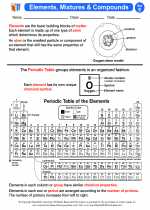
 Worksheet/Answer key
Worksheet/Answer key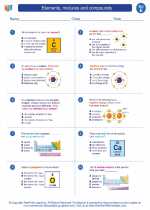
 Worksheet/Answer key
Worksheet/Answer key
 Worksheet/Answer key
Worksheet/Answer key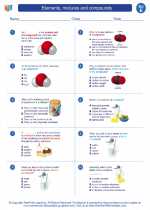
 Worksheet/Answer key
Worksheet/Answer key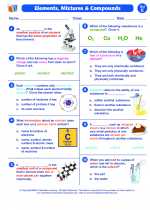
 Vocabulary/Answer key
Vocabulary/Answer key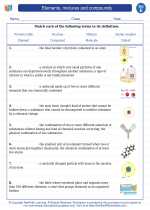
 Vocabulary/Answer key
Vocabulary/Answer key
